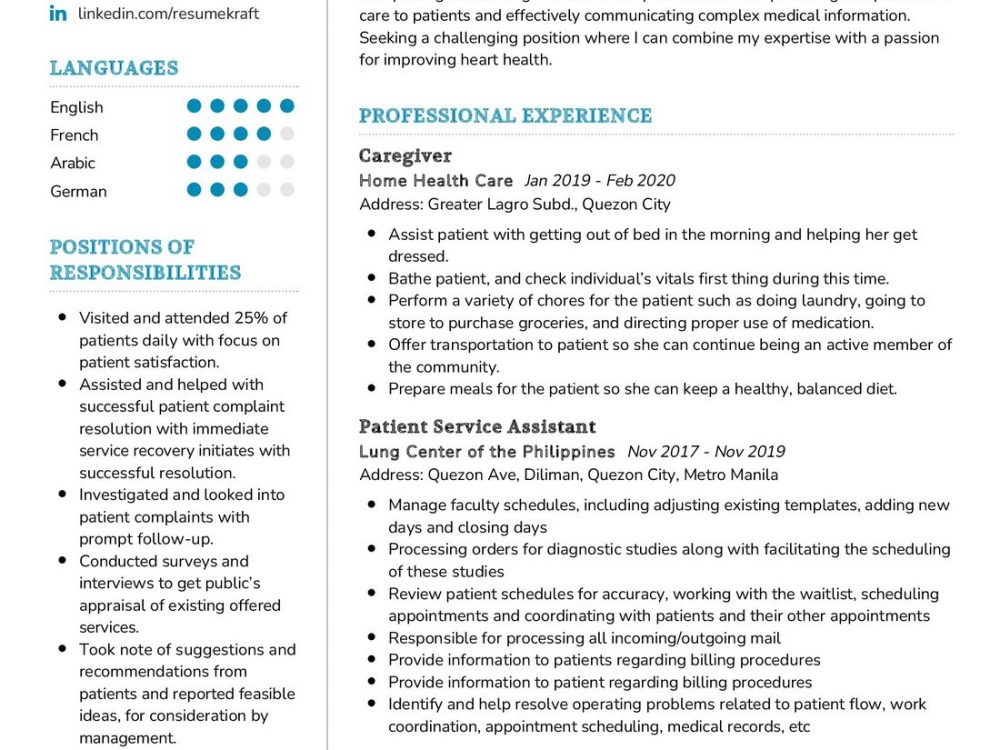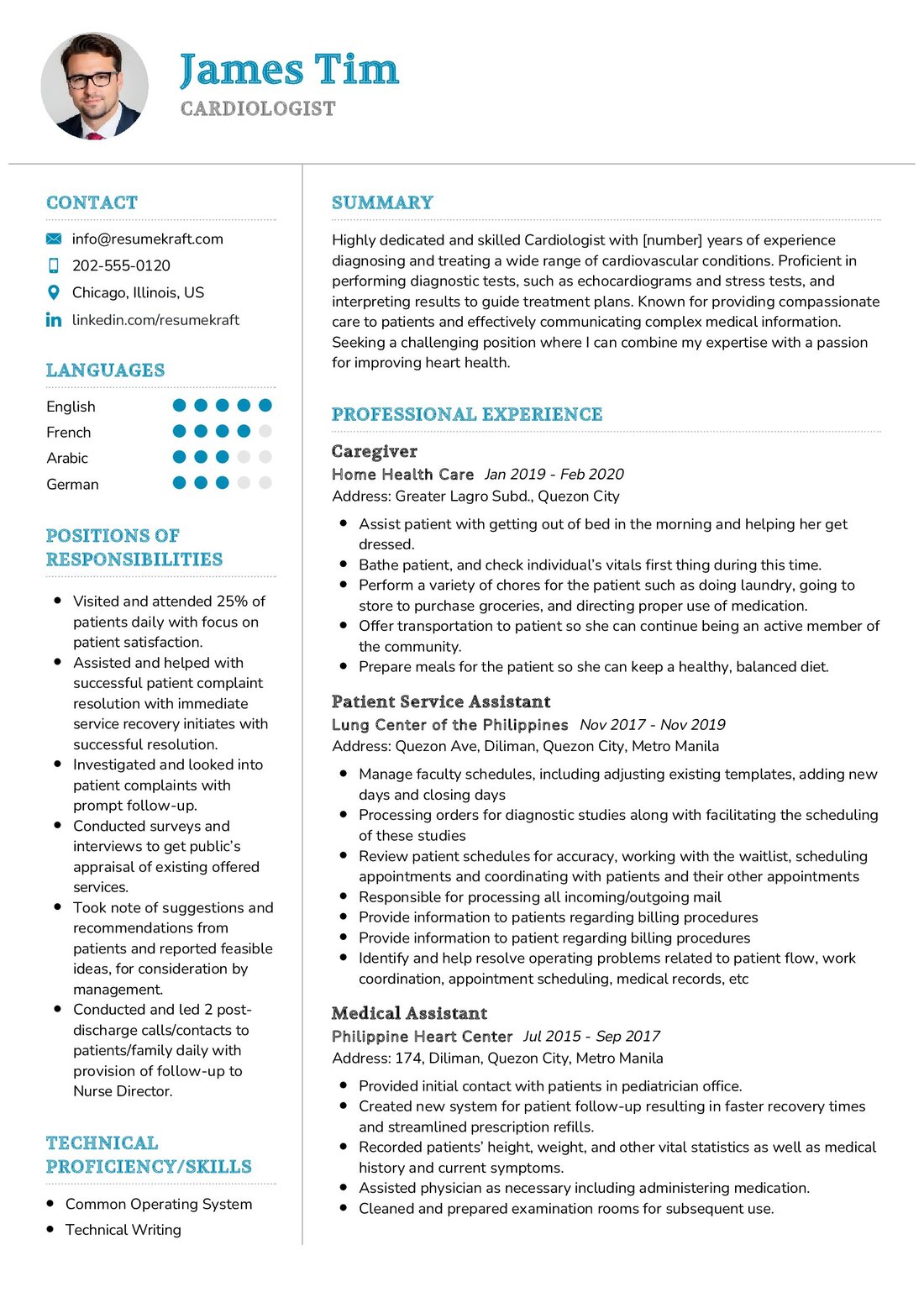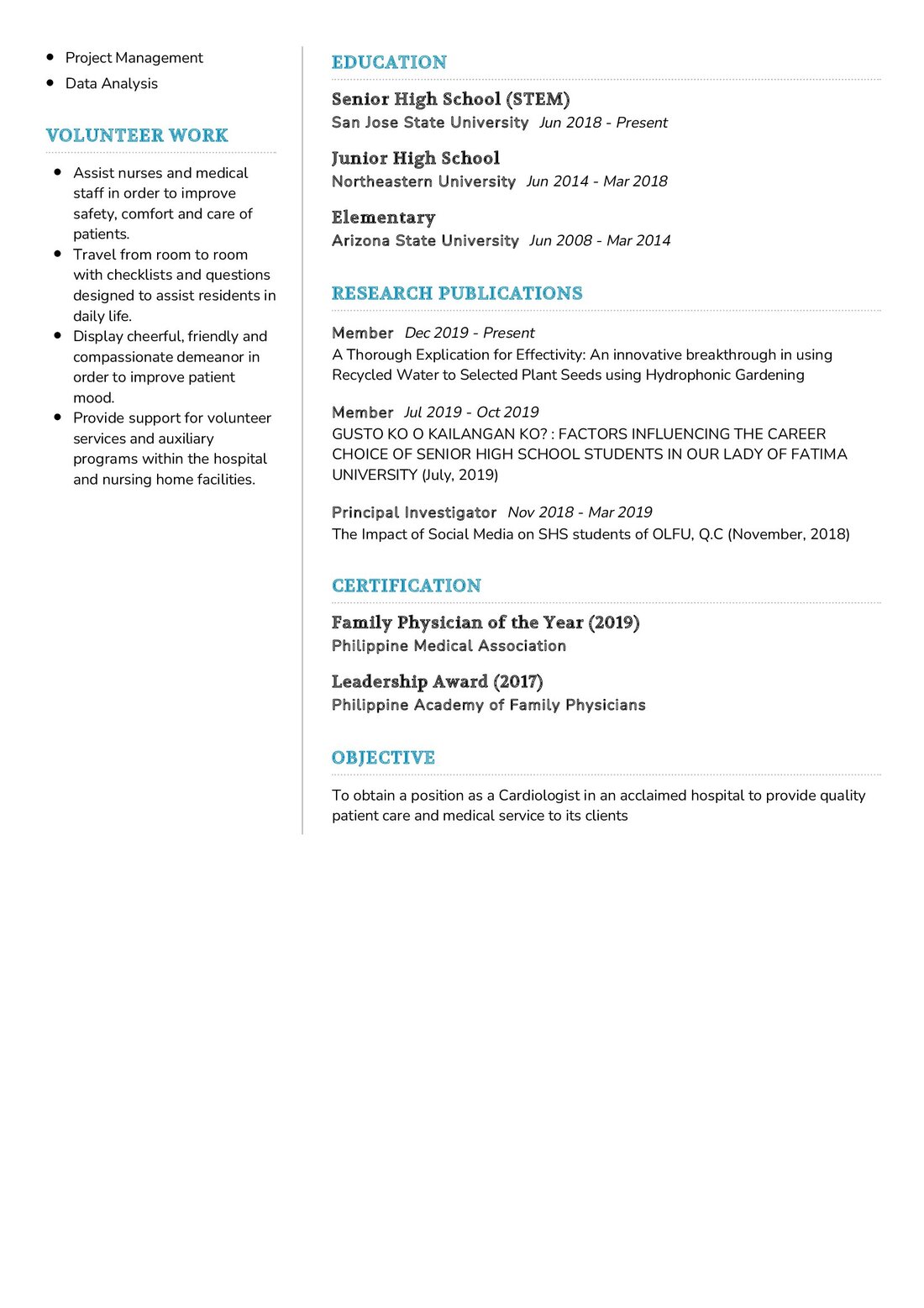What is the Role of a Cardiologist?
As the healthcare field continues to evolve, the role of a Cardiologist has become increasingly crucial in the medical community. Cardiologists are medical doctors who specialize in diagnosing, treating, and preventing heart-related conditions. Their role is a harmonious blend of medical expertise and patient care, guiding patients toward heart health. Let’s delve deeper into the multifaceted role of a Cardiologist, a position that demands a deep understanding of cardiovascular medicine coupled with the ability to provide compassionate care.
A Cardiologist is responsible for the management of various heart-related conditions, ensuring that patients receive the best possible care and treatment. They are often seen sharing insights from their extensive medical training to educate patients, fostering a collaborative and patient-centered approach. Their role is pivotal in bridging the gap between complex medical concepts and patient understanding, often acting as advocates for their patients while ensuring optimal heart health.
What are the Cardiologist Job Requirements?
Becoming a Cardiologist is a demanding yet highly rewarding journey. It involves extensive education, training, and dedication to the field of cardiovascular medicine. Let’s delve deeper into the prerequisites that one needs to fulfill to embrace the role of a Cardiologist:
- Completion of a Bachelor’s degree in a related field, followed by medical school to obtain a Doctor of Medicine (MD) degree.
- Residency training in Internal Medicine, typically lasting three years, to gain a broad foundation in medical knowledge.
- Fellowship training in Cardiology, which can take an additional three to four years to specialize in heart-related diseases and treatments.
- Board certification in Cardiology, demonstrating a high level of expertise and competence in the field.
- Strong communication skills and empathy, as patient interaction and education are integral to the role.
- Ability to work long hours, handle stressful situations, and keep up-to-date with advances in cardiac medicine.
Securing additional certifications and continuing medical education in specialized areas of cardiology can further enhance a Cardiologist’s profile.
What are the Responsibilities of a Cardiologist?
The role of a Cardiologist is a tapestry of varied responsibilities, woven with threads of medical expertise, patient care, and a commitment to heart health. Let’s unravel the core responsibilities that define this role, each thread narrating a story of dedication, knowledge, and empathy:
- Diagnosing and treating various heart conditions, such as coronary artery disease, heart failure, arrhythmias, and valvular heart disease.
- Performing diagnostic procedures, including echocardiograms, stress tests, and cardiac catheterizations, to assess and monitor heart health.
- Developing individualized treatment plans for patients, which may include medications, lifestyle modifications, or surgical interventions.
- Providing ongoing care and support to patients with chronic heart conditions, helping them manage their health and improve their quality of life.
- Educating patients about heart disease prevention, risk factors, and healthy lifestyle choices to reduce the incidence of heart-related problems.
- Collaborating with other healthcare professionals, including surgeons, nurses, and dietitians, to ensure comprehensive patient care.
- Staying updated with the latest advancements in cardiology research and technology, implementing best practices for patient care.
Each responsibility comes with its own set of challenges and opportunities to make a positive impact on patients’ lives.
Cardiologist Resume Writing Tips
As you craft a resume that stands out in the competitive field of healthcare, remember that your resume is a reflection of your education, experience, and commitment to patient well-being. Here are some tips to help you create an effective Cardiologist resume:
- Highlight your medical education and training, emphasizing your medical school, residency, and cardiology fellowship.
- Detail your clinical experience, showcasing the range of cardiac conditions you’ve diagnosed and treated.
- Include metrics where possible, such as the number of patients treated, successful interventions, or research publications.
- List any certifications or memberships in professional organizations related to cardiology.
- Personalize your resume for specific job applications, tailoring your qualifications to match the requirements of the position.
Each tip is a step toward crafting a compelling resume that highlights your expertise as a Cardiologist.
Cardiologist Resume Summary Examples
Your resume summary is the opening act of your career story, setting the stage for what is to follow. It should be a powerful snapshot of your journey, encapsulating your experiences, skills, and the value you bring to the field of cardiology. Here are some examples to inspire you:
- “Experienced Cardiologist with a passion for preventing and treating heart disease, dedicated to improving patients’ cardiovascular health through comprehensive care and cutting-edge treatments.”
- “Board-certified Cardiologist with a track record of successful interventions and patient outcomes, committed to staying at the forefront of cardiology advancements to deliver the best care possible.”
- “Compassionate Cardiologist with expertise in patient education, helping individuals understand and manage their heart conditions for a healthier life.”
Each summary is a window into your career, offering a glimpse of your journey, your strengths, and your dedication to cardiology.
Create a Strong Experience Section for Your Cardiologist Resume
Your experience section is the heart of your resume, pulsating with the rich experiences you have gathered over the years. It is a space where you narrate your career story, highlighting the milestones and the impact you’ve made on patients’ lives. Here are some examples to guide you:
- “Led a cardiology team in a busy urban hospital, overseeing the diagnosis and treatment of a diverse range of cardiac conditions, resulting in a 15% reduction in heart-related readmissions.”
- “Established a cardiac rehabilitation program for post-heart surgery patients, improving their recovery and overall quality of life.”
- “Contributed to cardiology research studies, publishing findings in reputable medical journals and advancing the field’s knowledge.”
Each experience is a chapter in your career book, narrating tales of challenges met, lives saved, and contributions to medical science.
Sample Education Section for Your Cardiologist Resume
Your educational journey is the foundation upon which your career stands. It is a testimony to your knowledge, your expertise, and your commitment to patient care. Here’s how you can list your educational milestones:
- Doctor of Medicine (MD), XYZ Medical School, a rigorous academic journey in pursuit of medical excellence, 2010.
- Res
idency in Internal Medicine, ABC Hospital, comprehensive training in medical practice and patient care, 2013.
- Fellowship in Cardiology, Cardiovascular Institute, specialized training in the diagnosis and treatment of heart conditions, 2017.
- Board Certified in Cardiology, demonstrating expertise and commitment to the field, 2019.
Each educational qualification is a stepping stone, leading you to the pinnacle of success in the field of cardiology.
Cardiologist Skills for Your Resume
Your skill set is your toolbox, equipped with a diverse range of tools that you have honed over the years. It is a showcase of your abilities, both medical and interpersonal. Let’s list down the essential skills that a Cardiologist should possess:
Medical Skills:
- Expertise in diagnosing and treating cardiovascular diseases, the cornerstone of your medical practice.
- Medical research skills, including the ability to design and conduct clinical studies in cardiology.
- Advanced knowledge of diagnostic tools and techniques, such as echocardiography, stress testing, and cardiac catheterization.
- Communication skills, the ability to explain complex medical concepts to patients in an understandable way.
- Empathy and patient-centered care, crucial for building trust and rapport with patients.
Soft Skills:
- Leadership and teamwork, essential for collaborating with fellow healthcare professionals in a multidisciplinary setting.
- Adaptability and resilience, the ability to navigate the dynamic landscape of healthcare and address unexpected challenges.
- Attention to detail, a meticulous approach to patient care and medical documentation.
- Time management and organization, crucial for efficiently managing patient appointments and medical records.
Each skill is a tool, aiding you in providing exceptional care and leading your medical team effectively.
Most Common Mistakes to Avoid When Writing a Cardiologist Resume
As you craft your resume, it is essential to steer clear of common pitfalls that can hinder your journey to securing a prestigious position as a Cardiologist. Here we list down the mistakes often seen in resumes and how to avoid them:
- Using a generic or one-size-fits-all resume, which fails to highlight your unique qualifications and achievements in cardiology.
- Listing duties without showcasing your accomplishments and the positive impact you’ve had on patient care.
- Neglecting to include a well-written cover letter, missing an opportunity to introduce yourself and express your passion for cardiology.
- Overloading your resume with medical jargon, potentially confusing employers who may not be familiar with specialized terms.
- Failing to proofread your resume, which can leave a negative impression and detract from your professionalism.
Each mistake is a potential obstacle to creating a resume that effectively communicates your expertise and dedication as a Cardiologist.
Key Takeaways for Your Cardiologist Resume
As we reach the conclusion of this comprehensive guide, let’s recap the key points to keep in mind while crafting your Cardiologist resume:
- Emphasize your medical education and training, showcasing your path to becoming a board-certified Cardiologist.
- Highlight your clinical experience, detailing your contributions to patient care and the field of cardiology.
- Showcase your dedication to patient-centered care and ongoing professional development.
- Include a well-crafted cover letter to introduce yourself and express your passion for cardiology.
Finally, feel free to utilize resources like AI Resume Builder, Resume Design, Resume Samples, Resume Examples, Resume Skills, Resume Help, Resume Synonyms, and Job Responsibilities to create a standout application and prepare for the Cardiologist job interview.
Armed with these insights and tips, you are now ready to craft a resume that is a true reflection of your journey, your skills, and your dedication to improving the heart health of your patients. Best of luck in your career as a Cardiologist!



